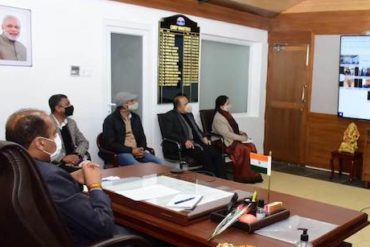New Delhi, June 4 (IANS) The Central Information Commission (CIC) ruling that political parties are public authorities is “most significant” as they would now need to respond to RTI queries on their assets, funding and members, former commissioner Wajahat Habibullah said Tuesday.
“All the information about the political parties is available to the government, but under different departments. Now, the political parties would be themselves responsible for giving the information to the public,” Habibullah told IANS, a day after the CIC ruled that political parties come under the ambit of the Right to Information Act.
“The fact that political parties have been held to be public authorities is most significant,” Habibullah, who headed the agency from Oct 26, 2005 to Sep 29, 2010, said.
He said information about land assets of a party can be found from the urban development ministry and information about its income tax payments from the Income Tax department.
“But now political parties are bound by a suo motu query to give all information about them. It is a most comprehensive, all embracing ruling,” added Habibullah.
The CIC Monday ruled that political parties are public authorities and are answerable under the Right to Information act.
A full bench of the CIC comprising Chief Information Commissioner Satyananda Mishra and Information Commissioners M.L. Sharma and Annapurna Dixit held six parties – the Congress, Bharatiya Janata Party, Communist Party of India-Marxist, Communist Party of India, the Nationalist Congress Party and the Bahujan Samaj Party – to be public authorities under the RTI Act.
“The presidents, general secretaries of these parties are hereby directed to designate Central Public Information Officers (CPIOs) and appellate authorities at their headquarters in six weeks. The CPIOs so appointed will respond to the RTI applications extracted in this order in four weeks’ time,” the bench directed.
The case relates to RTI queries from activist Subhash Agrawal and Anil Bairwal of Association of Democratic Reforms. They wanted information on the finances of voluntary financial contributions received by the six parties and the names and addresses of the donors besides other details. This was refused as the political parties claimed they did not come under the RTI Act.
The opinions, beliefs and viewpoints expressed by authors, news service providers on this page do not necessarily reflect the opinions, beliefs and viewpoints of Hill Post. Any views or opinions are not intended to malign any religion, ethnic group, club, organization, company, or individual.
Hill Post makes no representations as to the accuracy or completeness of any information on this site page.



